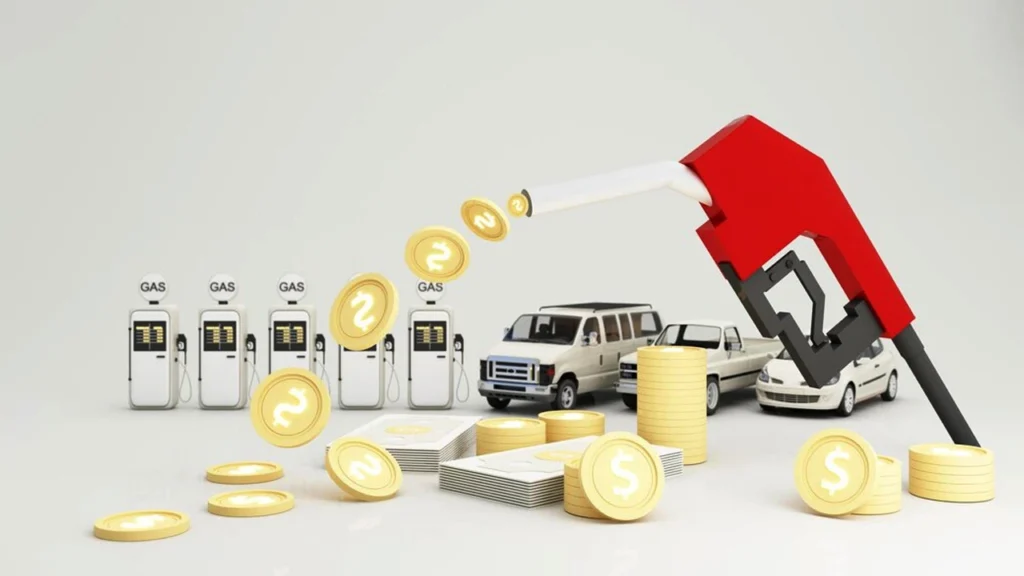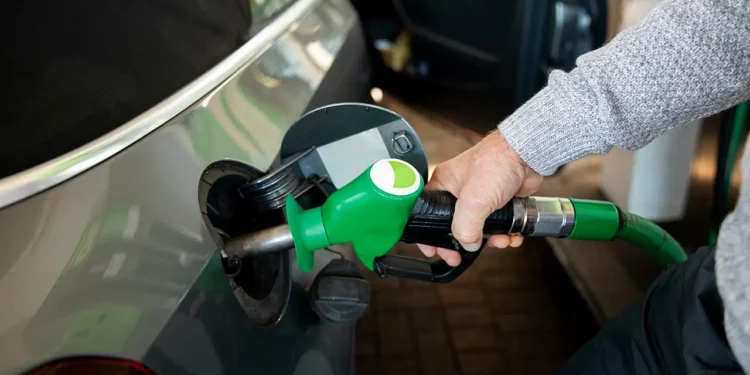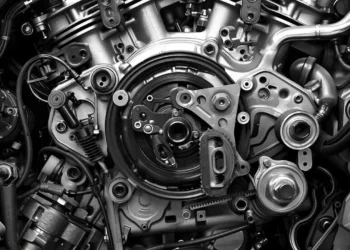As gas prices climb, many individuals are looking for methods to cut down on fuel costs. Gas is among the largest expenses for vehicle owners, alongside insurance, financing fees, and maintenance. Fortunately, there are ways to lower your expenses. You can save on gas by using a discount or gas rewards credit card and gas comparison apps, adjusting your driving habits, and keeping your vehicle well-maintained. Here are some tips to reduce your gas spending.
How to Save Money on Gas

First, set a budget. Just like you track grocery costs, knowing your gas expenses can help you set savings goals. Unsure where to start? Check last month’s gas spending. You can use that amount as your target for the year or try to cut it by 10% initially.
Now, let’s explore ways to save money on gas for your car over time.
Drive gently. Error, wisely!
No list of gas-saving advice would be thorough without stressing the need to slow down. It’s a fact that lower speeds use less fuel, mainly because aerodynamic drag increases with the square of speed.
So, that’s the rundown. However, driving to conserve fuel doesn’t have to be a monotonous crawl. Think of it this way: brakes convert your money into heat, so can you avoid using them?
This isn’t an endorsement of risky behavior like ignoring stop signs. Instead, sharpen your anticipation skills. Glance further down the road, and ease off the accelerator when you see a traffic signal turning red. You might even find it gratifying. Added bonus: You’ll drive more safely, too.
While hybrid and electric cars are ideally suited to benefit from this method (thanks to regenerative braking), many standard gas vehicles now use power-draining accessories like the alternator during coast-down to improve fuel efficiency.
Regarding acceleration, if you know you’ll be maintaining a higher speed for a while, such as merging onto a highway, go ahead and accelerate as needed. Slow acceleration in this case could be unsafe and doesn’t actually save fuel.
You spend plenty of money on gas. Do you want to spend less? It’s a lot easier than you think. Here’s a bit of money-saving wisdom to consider:
1. Perform Regular Maintenance
You know that feeling when your car just isn’t running as smoothly as it used to? It might be time for some maintenance. Worn-out spark plugs, threadbare tires, and clogged air filters can make your engine work overtime, which means more trips to the gas station. Even if your car seems fine, it’s worth sticking to the manufacturer’s servicing schedule. Simple things, like keeping your tires properly inflated, can make a big difference. In fact, according to the Department of Energy, properly inflated tires can improve your gas mileage by up to 3 percent. The correct tire pressure is mentioned in the car’s manual.
2. Estimated Savings
The amount you can save on fuel with the previously mentioned methods will vary based on factors such as your driving style, your vehicle’s make and model, its fuel economy, local gas prices, and how well your vehicle is maintained.
By driving at speeds between 80 and 90 km/h, accelerating gently, avoiding unnecessary idling, keeping up with regular maintenance and proper tire pressure, and making wise choices at the pump, you can certainly reduce your monthly gas expenses significantly.
3. Use A Discount Card
Fuel cards allow for reduction in your spending. Many of the big gas station chains make discount cards available, so consider getting one. These cards could save you up to 5% on every fill-up. Add that savings up per year and you will find it’s a considerable sum of money.
4. Shop Around
Seek out your neighborhood’s best deal, or one that’s within a couple minute detour from your driving path into work every day. There are many phone apps that can help you, GasBuddy is one of the big ones. As indicated above, we know that you spend tons of money on gas, and using this tip in particular will for sure keep more money in your bank account!
5. Buy in The Morning
Did you know that gas is denser earlier in the day, but also cooler? Pumping the substance into your car’s tank when it is dense means that more of it can fit in!
6. Don’t Buy Higher Octane Gas Than your Car Requires
Higher octane gas exists for a single reason: for better combustion in high compression engines. Go with the octane level that your car maker recommends – the recommended octane level is in the owner’s manual. We highly recommend opting for a fuel-efficient car at the first place. Otherwise you will regret your buying decision for the rest of your life.
7. Do you Have to Pay for “Better Gas”?
No. Gas companies throw additives in expensive grades to “improve performance” and “keep your engine clean”. There is a little bit of truth to the advertising, however, several studies show that any effects are barely noticeable. If you want to save money on each and every fill-up, skip the more expensive gas grades, or perhaps opt for alternative transportation fuels if your vehicle allows for that.
8. Pay Cash When There is a Discount
It’s not common, but some gas stations charge you less if you pay cash. That makes it so that the merchants will not have to pay credit card companies a merchant fee and then pass those savings on to you.











